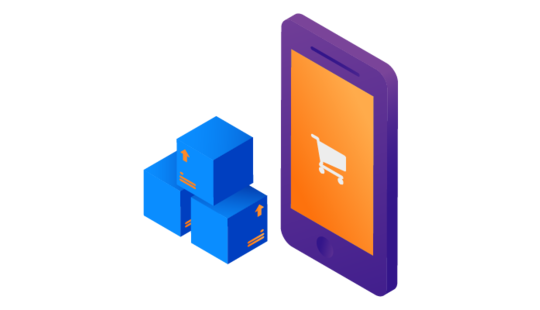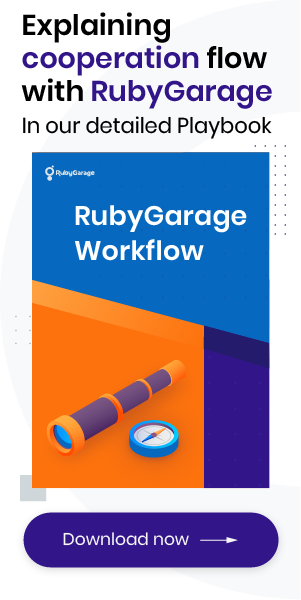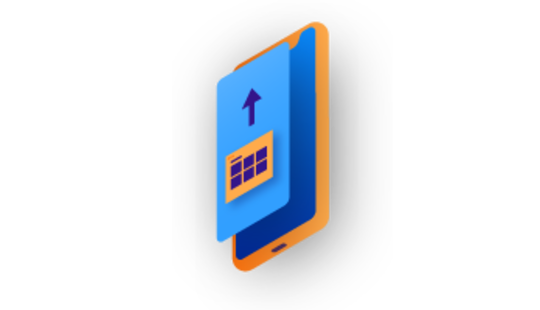-
Product Management
Software Testing
Technology Consulting
-
Multi-Vendor Marketplace
Online StoreCreate an online store with unique design and features at minimal cost using our MarketAge solutionCustom MarketplaceGet a unique, scalable, and cost-effective online marketplace with minimum time to marketTelemedicine SoftwareGet a cost-efficient, HIPAA-compliant telemedicine solution tailored to your facility's requirementsChat AppGet a customizable chat solution to connect users across multiple apps and platformsCustom Booking SystemImprove your business operations and expand to new markets with our appointment booking solutionVideo ConferencingAdjust our video conferencing solution for your business needsFor EnterpriseScale, automate, and improve business processes in your enterprise with our custom software solutionsFor StartupsTurn your startup ideas into viable, value-driven, and commercially successful software solutions -
-
- Case Studies
- Blog
Should You Choose a PWA or Native App for Your Ecommerce Business?
The number of mobile consumers has been growing steadily. According to Statista, the number of smartphone users worldwide will reach 2.87 billion by 2020. To meet modern customers’ demands, ecommerce entrepreneurs have to provide a fast, easy, and seamless mobile shopping experience. That’s where mobile apps and progressive web apps (PWAs) come in.
But which should you choose: a progressive web app or a native app? To make an informed decision, you’ll first need to know the pros and cons of each approach. To simplify things, we’ve written this guide about the differences between PWAs and native apps and how businesses can benefit from each.
Progressive web apps
A progressive web app is a website that acts like a native mobile app. The main difference between a native mobile application and a PWA is that a PWA operates in a browser, so there’s no need to download it from an app store. Thanks to service workers, PWAs can save data on a user’s device in the cache. That allows users to stay up to date at all times, no matter how fast their internet connection. For example, Twitter offers a progressive web application; however, they also have native mobile apps for iOS and Android.

Advantages of progressive web apps
Accessibility. A great advantage of PWAs over native apps is that they’re independent from app stores. Since 25 percent of smartphone users delete apps due to lack of storage space, this independence can be a great advantage. Customers don’t need to download PWAs and use lots of space. All that’s required is a web browser.
Autonomous functionality. A PWA can work in offline mode, giving users access to the online store at any time and keeping them always up to date.
SEO optimization. PWAs have URLs and, consequently, are indexed by Google. That means customers can easily find a PWA using a search engine.
Cheap and fast development. PWAs are cheaper, faster, and easier to develop than native apps. Developing native apps from scratch requires specific technologies for both platforms. In the case of a PWA, all that’s required is HTML, CSS, and JavaScript.
Disadvantages of progressive web apps
Feature restrictions. Since PWAs are only half apps, their functionality is limited. There are some features that PWAs can’t use. For instance, PWAs have no access to calendars, contacts, browser bookmarks, and alarms. Moreover, a PWA can’t intercept SMS or calls, get a user’s phone number, and so on.
No indoor geolocation. Progressive web apps can’t access Bluetooth, which is essential to indoor geolocation.
Limited web browser support. PWAs are not supported by all web browsers. Progressive web apps are Android-centric, and they don’t operate on Safari. Taking into account that Safari is the leading browser in the US with 51 percent of the market share, there’s a risk of losing a large mobile app audience if you only have a PWA.
No consumer data. As compared to native mobile apps, PWAs generally have no access to consumer data such as contacts and social profiles.
Limited iOS features. With PWAs, push notifications aren’t available for iOS users. PWAs can send push notifications only to Android devices. Because of this, online store owners lose a large target audience, since iPhone users are big ecommerce consumers. In addition, with a PWA, iOS users can face problems like limited storage space. Put simply, when iOS users install a PWA on their home screen, the offline data will be stored for a maximum of two weeks, after which the cache will be cleared.
Native mobile apps
Native mobile apps are developed to operate optimally on either iOS or Android. Thus, a native app can use the full range of functionality a device offers. To start using a native mobile app, users have to download it from an app store. PWAs omit this step, but at the same time, they don’t have some special features for iOS users.

Advantages of native apps
Great performance. Because native apps are developed and optimized for a certain platform, they provide a high level of performance. Native apps are installed directly on smartphones, allowing the software to leverage the device’s processing speed. Because data is already stored on a device, the app loads many times faster.
A superior user experience. A great user experience has always been crucial. All iOS apps must comply with Apple’s Human Design Guidelines to be published on the App Store.
Interactions with other apps. Native mobile apps can interact with other apps, meaning you can easily connect to third-party services: from authorization via Facebook to shipping through FedEx, any integration with an external service is possible.
Customizability. Native mobile applications provide great opportunities in terms of the interface and user experience. Online store owners can customize their stores as they desire and stand out from the crowd by adding unique features.
Geofencing. Unlike PWAs, native mobile apps are able to use core operating system features such as geofencing. With geofencing, when a user approaches a location, they receive a push notification.
Disadvantages of native apps
High cost of development. Native mobile apps are complex to develop and costly to maintain, unlike PWAs. Ecommerce store owners have to develop a mobile app for each platform and then maintain them.
User acquisition. Customers have to download a native app from the app store to start using it. For most online shoppers, this is seen as an extra step in their online shopping journey. So customers may consider a PWA more accessible.
Now that we’ve considered how PWAs and native apps differ, it’s time to compare their key features:

PWA vs native app: Which to choose?
Although native apps cost a lot to develop and require a more time-consuming development process, to ensure the comfort and satisfaction of your customers, we recommend choosing a native mobile application for your ecommerce website.
Native apps offer a more personalized experience, better performance, and an exceptional user experience. With all these advantages, your online store will easily meet dynamic and growing demands that lead to higher conversion rates.










